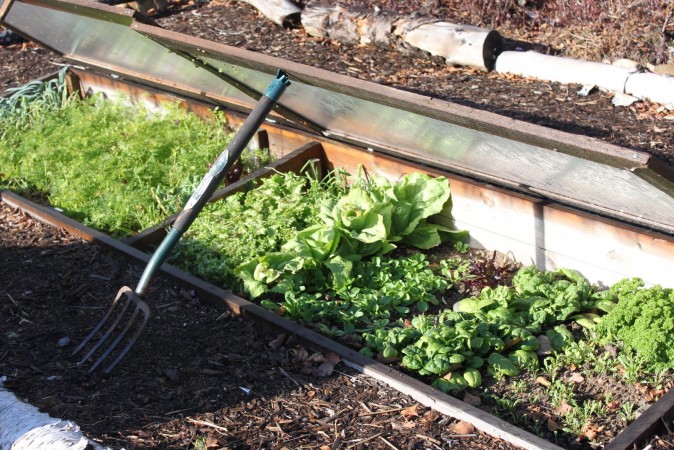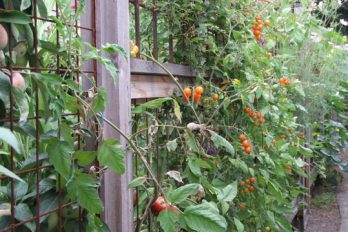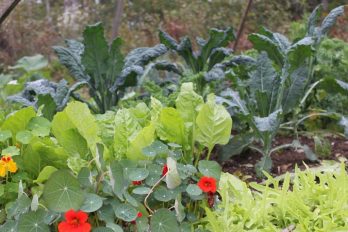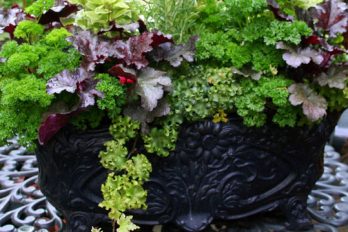- Water responsibly: Water is a precious resource – every drop is important. Although it depends on the crop, rather than applying several light, shallow sprinkles, water less frequently but deeply. Use soaker hoses to deliver water at root level where it’s needed. Sprinklers deliver a lot of moisture to the leaf surfaces, much of which is lost to evaporation.
- Control weeds: Weed often, keeping in mind that it’s easier to remove young seedlings than mature, well-rooted plants. If you can’t remove the entire weed, cut off the flowers and any seedheads to prevent weeds from going to seed and spreading. Planting densely and disturbing or turning the soil as little as possible helps limit weed growth. Mulches are also good weed suppressants.
- Fertilize: Feed, feed, feed. Veggies and herbs can be heavy feeders, so adding organic matter to the soil is vital. Supplementing with organic fertilizer and blood and bone meal also helps. It’s important to rotate crops to avoid one type of plant from depleting the soil of nutrients. (A practical way to do this is to swap with neighbours.) Keep a garden journal and plan (or pictures) as a reminder of where plants were in previous seasons.
- Control pests and disease: Look for insect pests every day, but know the difference between a beneficial insect and a pest. The best organic control is to squish bad bugs between your fingers – it’s fun! And, having a garden that provides habitat for a wide variety of insects and birds offers a natural way of controlling pests. Also, learn to accept that some plants, depending on the year and the growing season, are prone to various pests and diseases. For example, tomatoes and white fly, and mildew on squash and zucchini. To reduce the spread of fungus and bacteria, avoid wetting the foliage and watering in the evening.
- Vacation planning: If you go away for part of the summer, plan your crops so they’re ready to harvest when you return home. Avoid quick-growing crops like zucchini, cucumbers and beans. And when you’re back, sow for a late summer or fall harvest. If things do get out of control, donate your fresh produce to a local food bank.
[image: photo of Paul tk]




